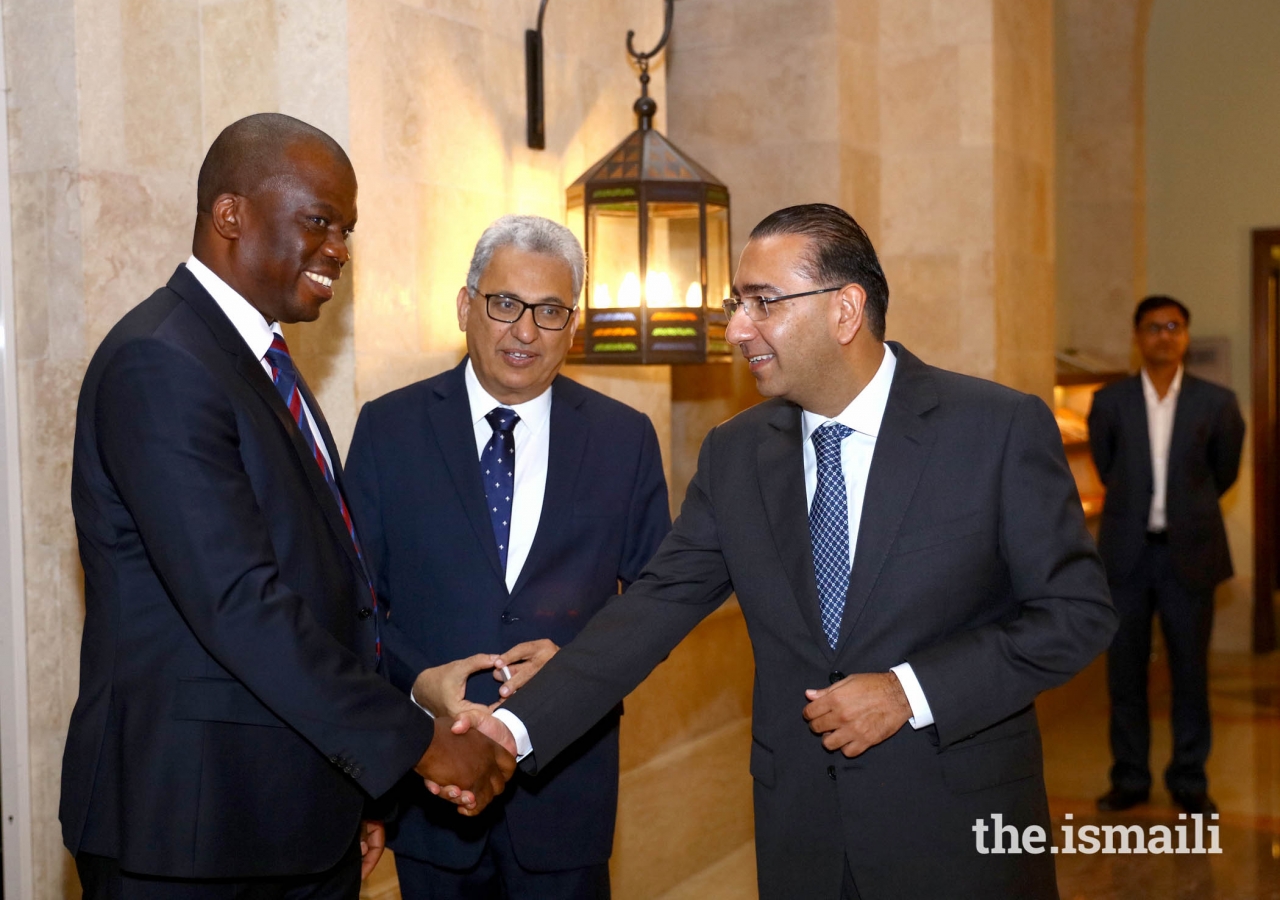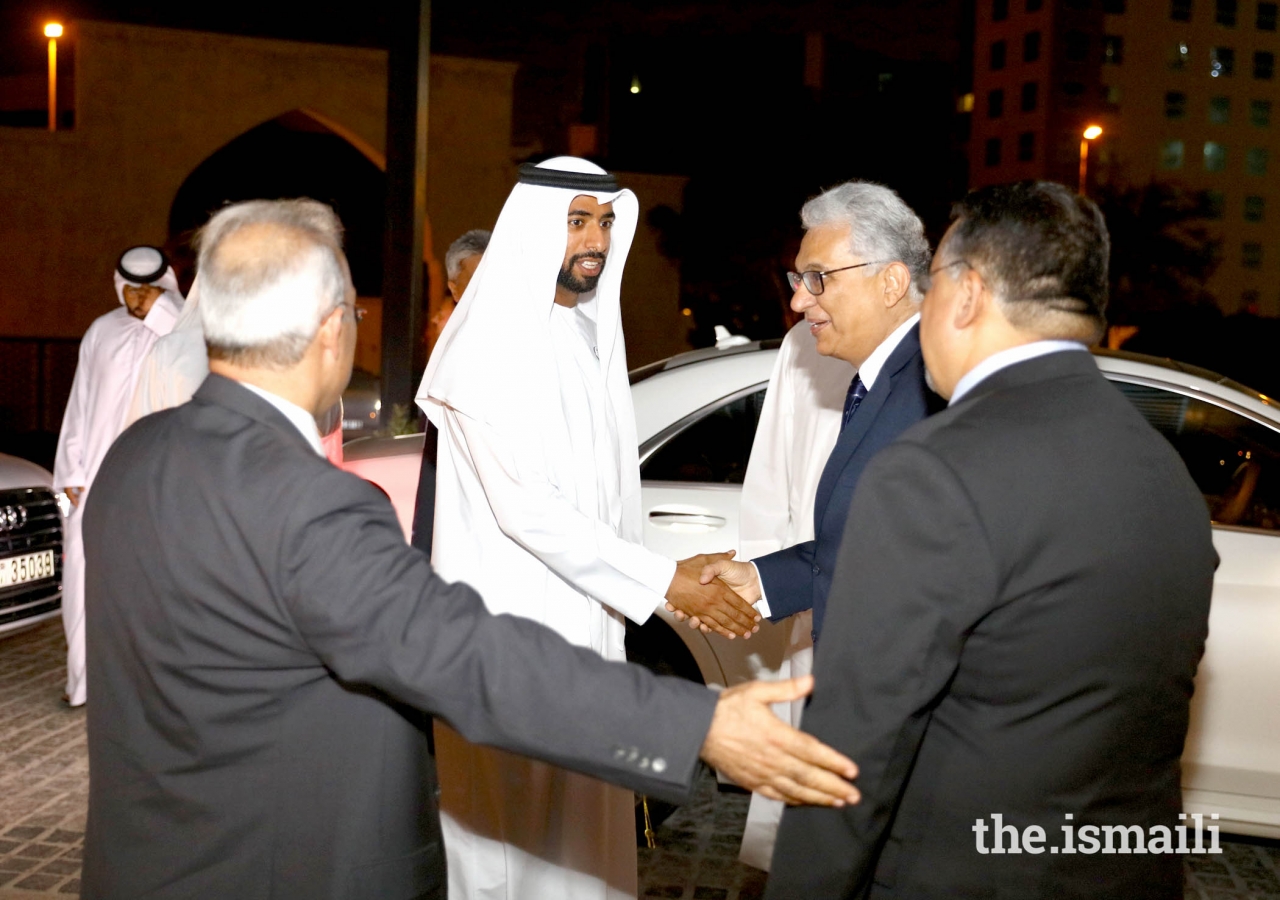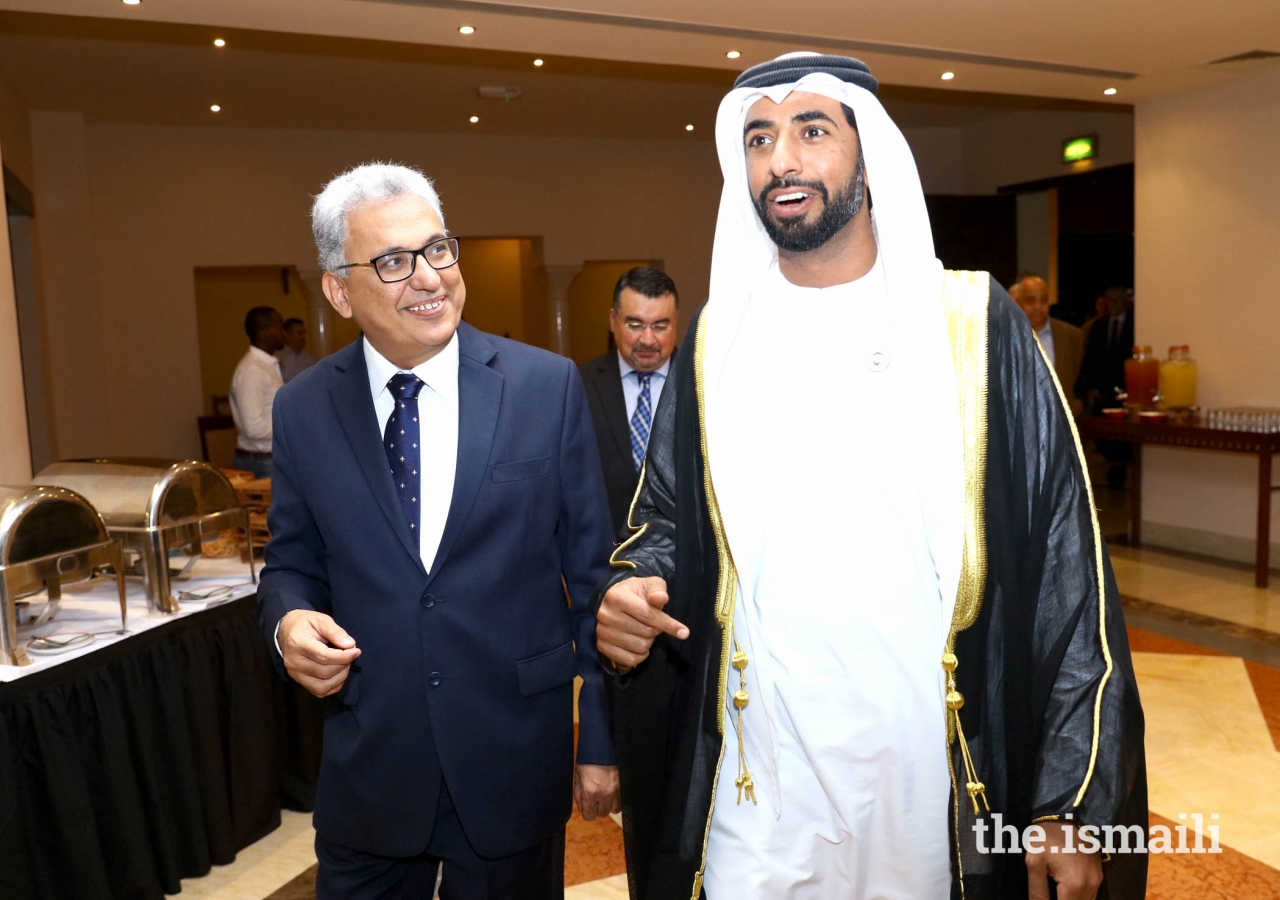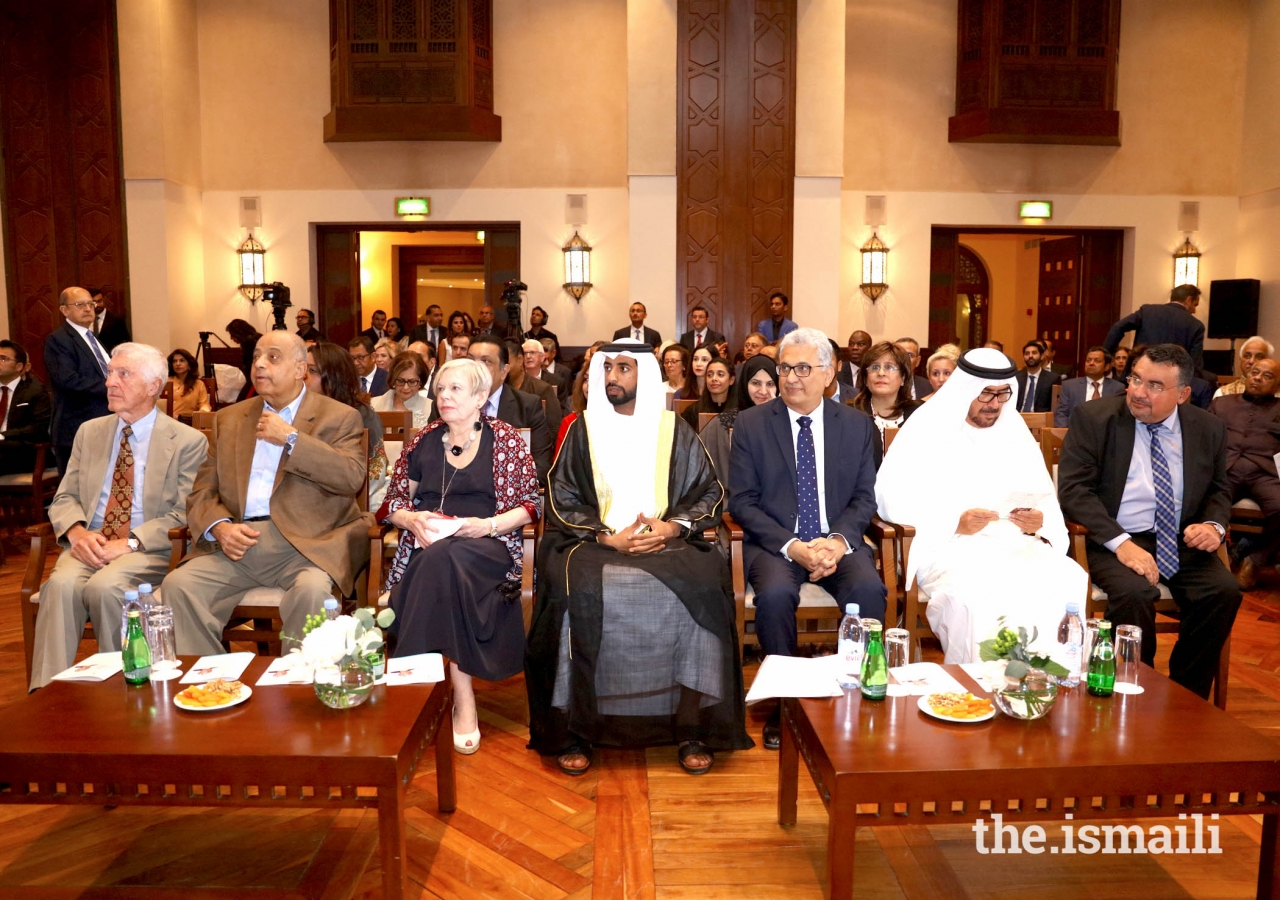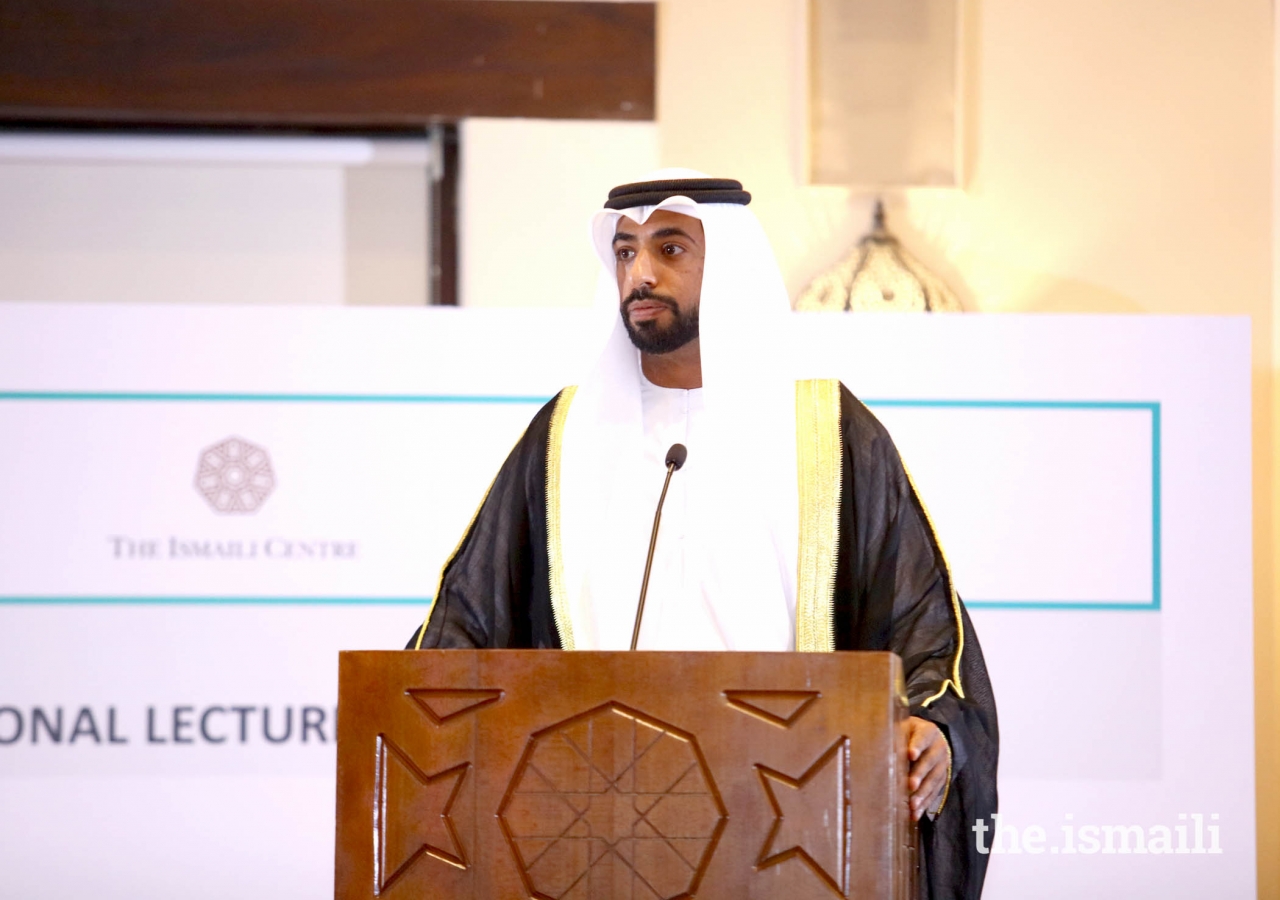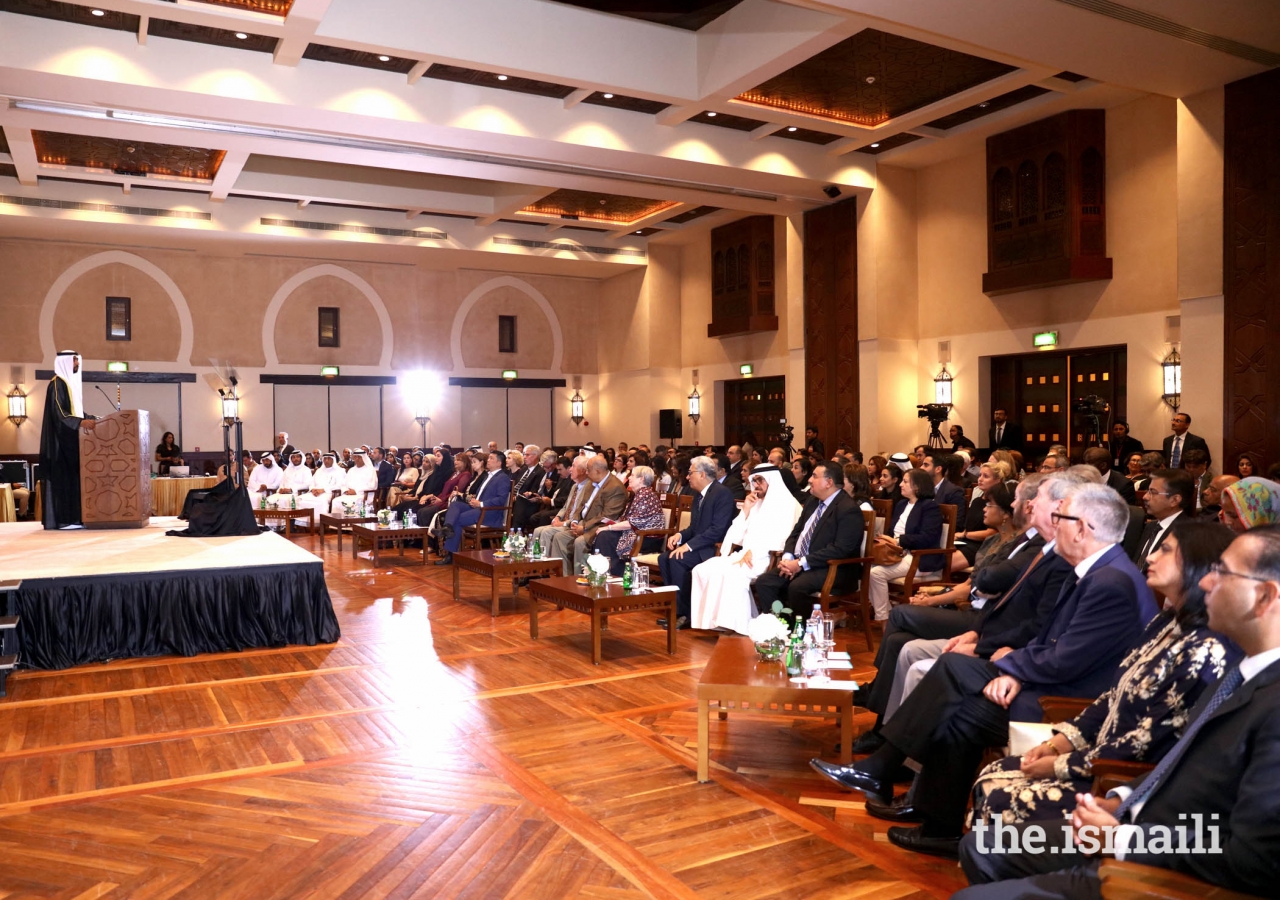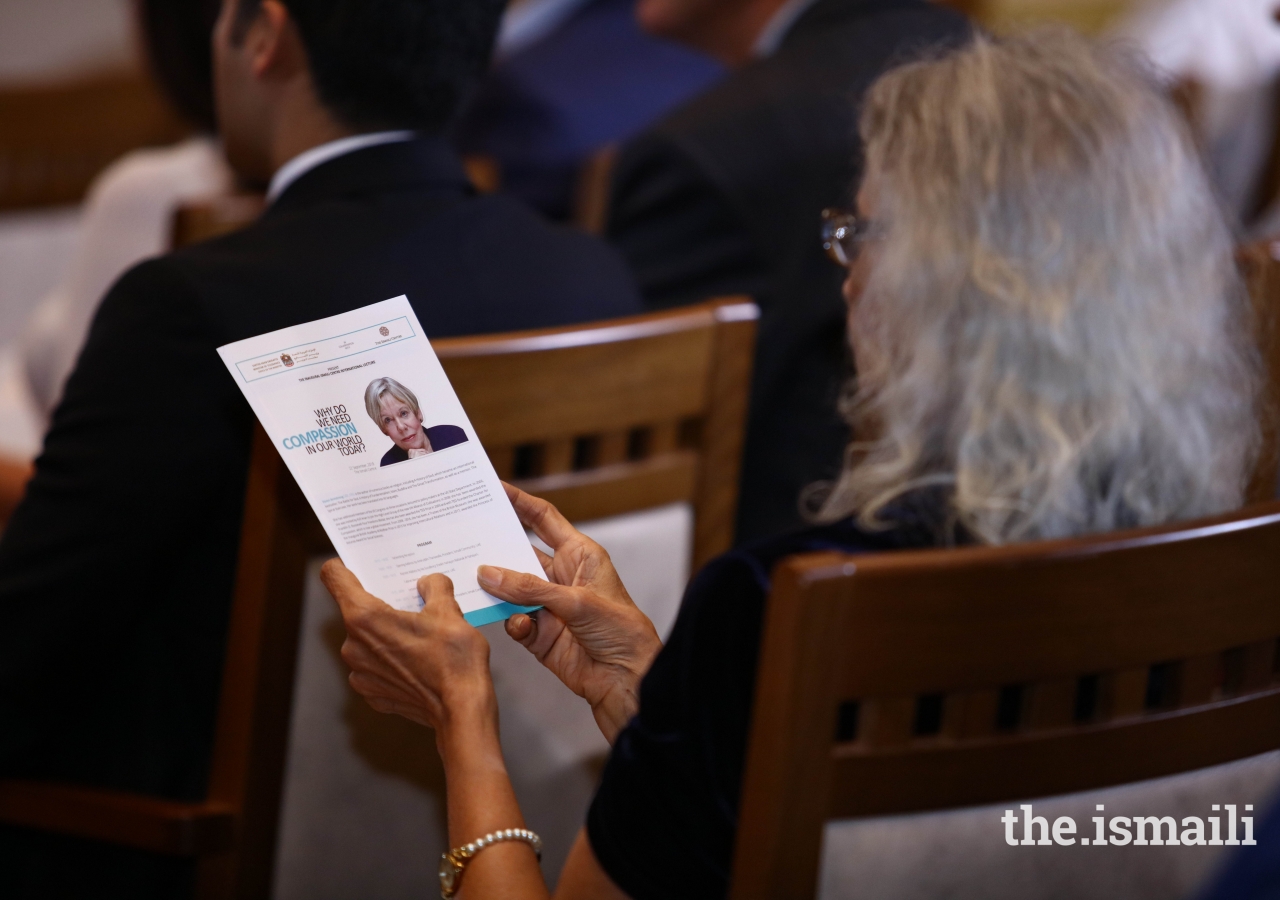Set within the architectural splendour of the Ismaili Centre Dubai, Dr Armstrong, religious historian and author, spoke about the Charter for Compassion, which she established in 2009. Founded with the support of TED Conferences and religious leaders globally, the charter has over two million signatures and brings to light the reason and urgency of practising compassion in a polarised world.
Opening the event on 22 September, His Excellency Sheikh Mohamed Nahayan Mabarak Al Nahayan commended Dr Armstrong, saying he could think of no other person “who has done more to explain Islam to the world, especially to people of other religions.” He further acknowledged the Ismaili community for bringing Dr Armstrong to the United Arab Emirates to speak at the Inaugural Ismaili Centre International Lecture.
Mr Amiruddin Thanawalla, President of the Ismaili Council for the UAE, expressed his honour in collaborating with the Ministry of Tolerance, “with whom we share a common mandate, to accept diversity and promote pluralism, tolerance, and understanding as core societal values.”
Dr Armstrong began her lecture by stating that “compassion is to feel with the other, endure with another, all day and every day,” and said that this was “a necessary practice required for our survival.”
An underlying premise amongst all major faiths, compassion is not only the beginning point on the journey to the divine, but the road to harmony amongst all people of the world, Dr Armstrong explained. “When we feel with the other, we dethrone ourselves from the centre of our world, get rid of our ego, and are ready to see the divine.” She further added that when we see the divine in others, we are able to live harmoniously with each other.
Dr Armstrong spoke about how Confucius first presented the concept of compassion in the fifth century BCE with the words ‘do not impose onto others what you do not want onto you.’ This concept was reiterated by the major prophets and religions, and subsequently became known as the golden rule. Prophet Muhammad (peace be upon him and his family) is believed to have said “none of you can be a believer unless you desire for your neighbour what you desire for yourself.”
The principles of the charter are being put into action in real-world scenarios. For example, the Charter for Compassion group in Pakistan has brought to life the principles of the Charter by enabling the employment of 630 individuals in the Sindh government who have been implementing compassionate practice into various business and social areas of society. Their latest project, entitled “Bridges” will see university students volunteering their time to empower street children with new skills, in the hope of returning equality to the community.
Members of the audience were inspired by Dr Armstrong’s remarks at the Ismaili Centre Dubai.
“Karen Armstrong expressed the view that we ought to be more compassionate, a view which is deeply grounded in the core teachings of all religions that can make us better and more compassionate people. She pulled her ideas from all her sources with deep respect. We felt truly inspired by her from a building that is also equally inspirational,” said Antigoni and Hari from the Consulate of Germany.
“The Charter for Compassion chimes perfectly with the sterling, practical work carried out by the AKDN throughout the developing world,” commented Bethan Alice Onions.
When asked what legacy she would like to leave behind, Dr Armstrong responded, “I would like to bring people of the world together.”



